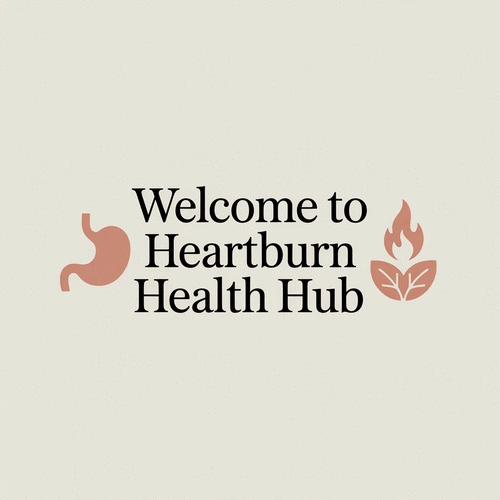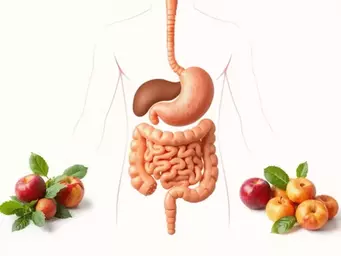What if you could take control of your heartburn and improve your digestive health? Understanding the nuances of heartburn medications and their interactions is key to feeling better and living well. Let’s explore the essential insights you need!
What You Will Learn
- Recognize dietary and lifestyle factors that contribute to heartburn, including certain foods and eating habits.
- Understand the role of antacids and proton pump inhibitors (PPIs) in managing heartburn symptoms.
- Identify potential drug interactions that could affect the efficacy of heartburn medications.
- Appreciate the importance of open communication with healthcare providers regarding all medications and symptoms.
Understanding Heartburn Medication Interactions
This visual highlights key considerations regarding heartburn medications, their interactions, and the importance of professional guidance.
Key Heartburn Triggers & Symptoms
- •Spicy/Fatty Foods
- •Caffeine & Alcohol
- •Large Meals
- •Burning Sensation
- •Regurgitation
Common Heartburn Medications
Antacids
Quick relief, neutralizes acidPPIs (Proton Pump Inhibitors)
Reduces acid productionCritical Drug Interactions to Watch For
- •Altered Gastric pH Effects
- •Interference with Blood Thinners
- •Mixing OTC with Prescriptions
- •Reduced Absorption
Patient Actions & Communication
- •Share All Meds (OTC, Rx, Supplements)
- •Discuss Symptoms & Frequency
- •Inquire About New Prescriptions
- •Report Side Effects Promptly
Understanding Heartburn and Medication Interactions
Heartburn can feel like a fiery sensation rising from your stomach to your chest. It’s a familiar discomfort for many, but do you know what really causes it? Understanding heartburn is crucial, especially when considering the medications we take to alleviate it. In this section, we’ll explore the underlying causes of heartburn and how various medications can play a role in either helping or complicating your condition.

Many factors contribute to heartburn, including dietary choices, obesity, and even stress. When we eat certain foods, our stomach produces acid to aid digestion. If the muscle that prevents this acid from flowing back into the esophagus, known as the lower esophageal sphincter, is weakened, heartburn can occur. Fortunately, there are effective medications like antacids and proton pump inhibitors (PPIs) that can help manage these symptoms. However, it’s essential to navigate their interactions with other drugs you may be taking.
What Causes Heartburn and How Medications Help
Let’s dive a bit deeper into what causes heartburn. Common triggers include:
- Spicy or fatty foods
- Caffeine and chocolate
- Alcohol and carbonated beverages
- Large meals or lying down right after eating
Medications often help people find relief from heartburn. Antacids can neutralize stomach acid quickly, while PPIs reduce acid production over time. Unfortunately, these medications aren't without their complications. For example, taking an antacid too close to other medications can prevent proper absorption, which is why understanding drug interactions is crucial.
The Importance of Knowing About Drug Interactions
As a gastroenterologist, I’ve seen firsthand the impact of drug interactions on heartburn management. Knowing how different medications can affect one another is vital for your digestive health. Some interactions can reduce the effectiveness of your heartburn medication or even lead to unwanted side effects. That's why I always encourage my patients to maintain open communication with their healthcare providers about all the medications they are taking.
Here are a few interactions to be aware of:
- Medications that alter gastric pH can impact how well your heartburn medication works.
- Some heartburn medications can interfere with the effectiveness of blood thinners and other critical medications.
- Not all over-the-counter remedies are safe to combine with prescription drugs.
Being informed encourages proactive discussions with your healthcare team. Together, we can create a plan that effectively manages your heartburn while keeping your overall health in mind!
Pro Tip
Did you know? Keeping a detailed food diary can help you identify specific triggers that contribute to your heartburn. By noting what you eat and how you feel afterward, you can better understand your body’s responses and make informed dietary choices to prevent discomfort.
Summary of Key Points on Heartburn Medications and Interactions
As we wrap up our discussion on heartburn medications and their interactions, it’s crucial to remember that knowledge is power! Being informed about how these medications work and their potential interactions can significantly impact your health journey. At Heartburn Health Hub, we believe that understanding these complexities helps you make better choices for managing your heartburn.

Here are some key takeaways to keep in mind:
- Communicate openly with your healthcare provider about all the medications you're taking.
- Be aware of how heartburn medications can interact with other prescriptions, over-the-counter drugs, and supplements.
- Keep track of any side effects or unusual symptoms you experience while using heartburn medications.
- Consider non-pharmaceutical approaches to heartburn management when appropriate.
Being proactive in your medication management can help you alleviate discomfort while maintaining your overall health!
The Importance of Communication with Healthcare Providers
Effective communication with your healthcare provider is a vital part of managing heartburn and ensuring safe medication use. It’s not just about reporting symptoms; it’s about sharing your complete medication list, including vitamins and supplements. This transparency allows your doctor to identify potential interactions and adjust your treatment plan accordingly.
Ask questions! Don’t hesitate to inquire about how a new prescription might affect your current medications. This proactive approach can not only enhance your treatment outcomes but also foster a trusting relationship with your healthcare team.
Final Thoughts: Making Informed Decisions About Your Medications
In the journey toward managing heartburn, being informed is just as important as following your treatment plan. With the right knowledge, you can navigate the complexities of medication interactions and feel empowered in your health decisions. Remember, it’s okay to seek second opinions or additional information if something doesn’t feel right.
At Heartburn Health Hub, we’re here to support your educational needs. By understanding your medications, you can alleviate discomfort while embracing a healthier lifestyle.
Next Steps for Patients Concerned About Medication Interactions
Consulting with Healthcare Professionals: What to Discuss
When consulting with your healthcare professional regarding heartburn medications, be sure to cover these essential topics:
- Your complete list of medications and supplements.
- Any past reactions to medications or known allergies.
- Your current heartburn symptoms and their frequency.
- Your lifestyle habits, including diet and exercise.
Having this information prepared can streamline your appointment and ensure that you receive the most tailored advice for your situation!
Resources for Further Information on Heartburn and Drug Interactions
For more information on heartburn and potential drug interactions, consider exploring the following resources:
- The American Gastroenterological Association for research and guidelines.
- The Food and Drug Administration (FDA) for medication updates and safety information.
- Peer-reviewed medical journals that discuss the latest findings in gastroenterology.
Engaging with trusted sources can help you stay informed and make educated choices regarding your heartburn management.
Understanding Drug Efficacy and Side Effects of Heartburn Medications
Understanding the efficacy and side effects of your heartburn medications is essential for your health. Each type of medication works differently and comes with its own set of potential side effects.
- Antacids: Effective for quick relief but may cause constipation or diarrhea.
- H2 blockers: Generally safe but can lead to confusion in elderly patients.
- Proton Pump Inhibitors (PPIs): Highly effective but long-term use may increase the risk of bone fractures.
By being aware of these aspects, you can better communicate with your healthcare provider and adjust your treatment plan when necessary. Remember, the goal is to find the most effective strategy for managing your heartburn while minimizing any adverse effects!
Frequently Asked Questions About Heartburn Medication Interactions
- What are common heartburn triggers?
- Common heartburn triggers include spicy or fatty foods, caffeine, chocolate, alcohol, carbonated beverages, large meals, and lying down immediately after eating.
- How do antacids and PPIs differ in treating heartburn?
- Antacids provide quick relief by neutralizing stomach acid, while Proton Pump Inhibitors (PPIs) reduce the production of stomach acid over time, offering longer-lasting relief.
- Why is it important to discuss all medications with a healthcare provider?
- It's crucial to discuss all medications (including OTC, prescriptions, and supplements) with your healthcare provider to identify potential drug interactions. Some interactions can reduce the effectiveness of heartburn medication or lead to adverse side effects.
- What are some critical drug interactions to be aware of?
- Critical drug interactions include altered gastric pH effects, interference with blood thinners, and adverse reactions when mixing over-the-counter remedies with prescription drugs. PPIs, for example, can also increase the risk of bone fractures with long-term use.
- What steps can I take to proactively manage my heartburn and medications?
- Proactive steps include keeping a food diary to identify triggers, openly communicating with your healthcare provider about all medications, being aware of potential drug interactions, monitoring for side effects, and considering non-pharmaceutical approaches to heartburn management.
Recap of Key Points
Here is a quick recap of the important points discussed in the article:
- Understand Triggers: Common heartburn triggers include spicy foods, caffeine, chocolate, alcohol, and large meals.
- Medication Awareness: Antacids and PPIs can help manage symptoms but may interact with other medications, impacting their effectiveness.
- Communication is Key: Always inform your healthcare provider about all medications and supplements you are taking to avoid harmful interactions.
- Monitor Side Effects: Keep track of any side effects or unusual symptoms when using heartburn medications.
- Explore Non-Pharmaceutical Options: Consider dietary changes and lifestyle adjustments as effective strategies for managing heartburn.










